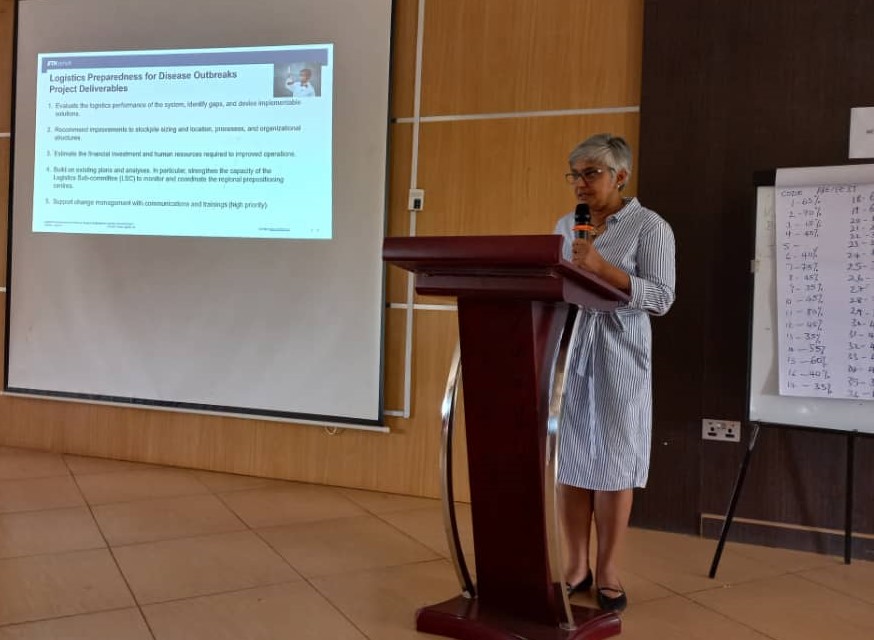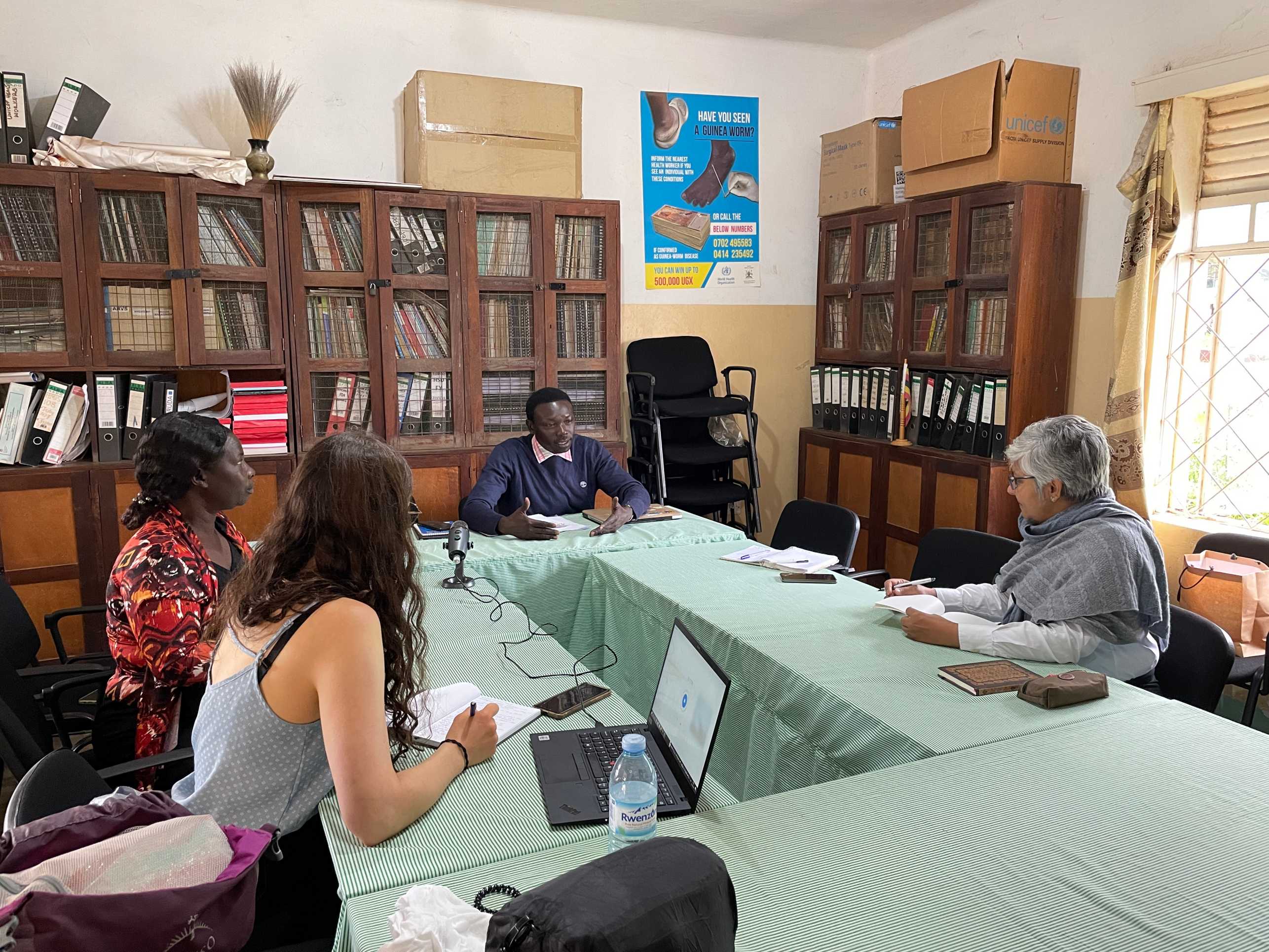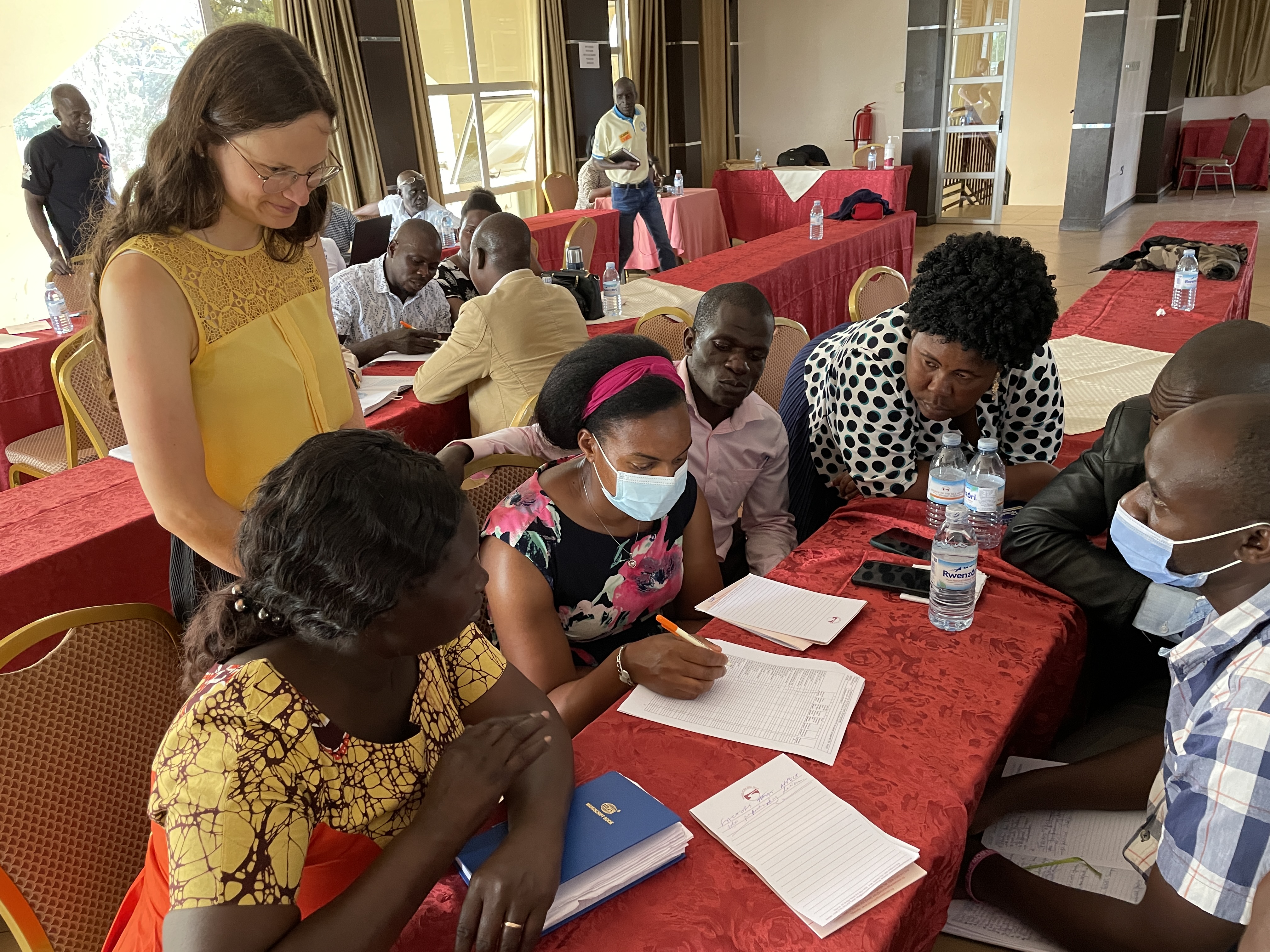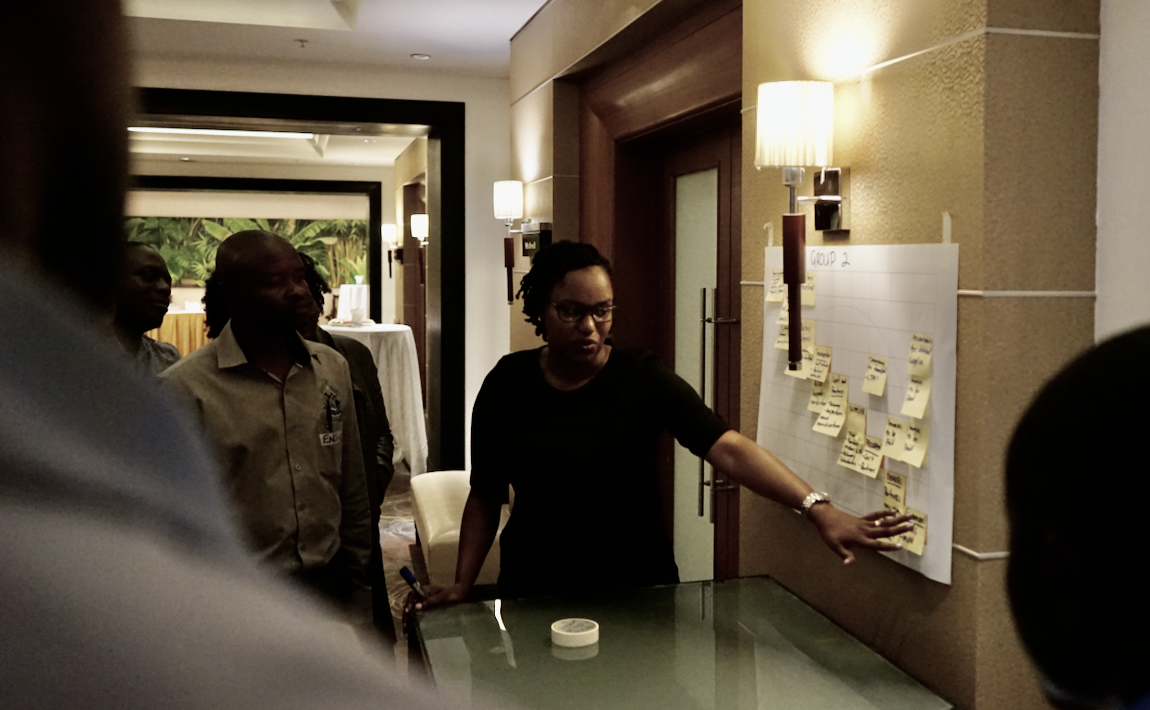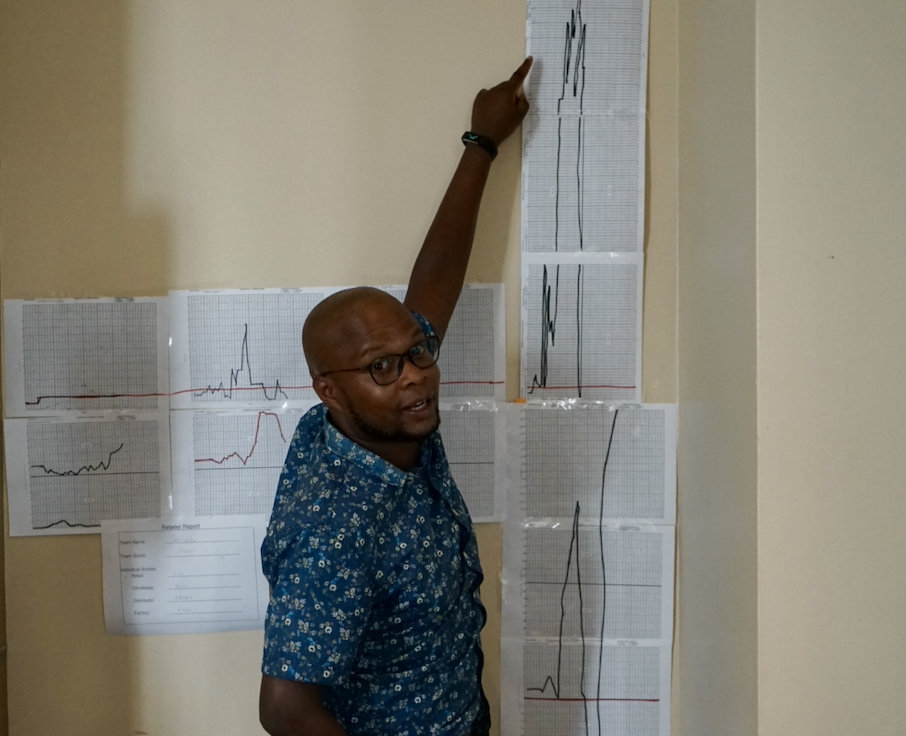The HumOSCM Lab
What We Do
We apply scientific research to real world supply chains to make budgets go further.
Responsive and smoothly-functioning supply chains are critical success factors for getting the goods and services to the right place at the right time during disaster relief and humanitarian response. Supply chains (including logistics and procurement activity), consume up to 80% of a humanitarian organization’s budget. Improving supply chain strategy and execution directly supports the provision of humanitarian aid and response. Simply put: high-performing supply chains make limited budgets go further to reach more people in need.
To hear more about a successful project implementation at ICRC, see the video below:
How We Do It
Everything begins with a real-life humanitarian challenge, or a research gap.
In our applied research projects, we develop impactful and field-tested solutions, hand-in-hand with humanitarian organisations.
Who We Work With
Support Us
Donors sometimes struggle to find trustworthy recipients of their financial support. ETH now offers them a chance to support world-class humanitarian research.
Want to get involved? Ask us about our Sponsors' Program.
Project Impressions
Our projects address some of the world’s most urgent problems, like pandemic response and distributing supply to war zones.
Examples include our project with Uganda’s Ministry of Health to improve their Logistics Preparedness for Disease Outbreaks.
Within ETH’s Engineering Humanitarian Aid program, our teams are working with the ICRC to improve medical supply in conflict zones.
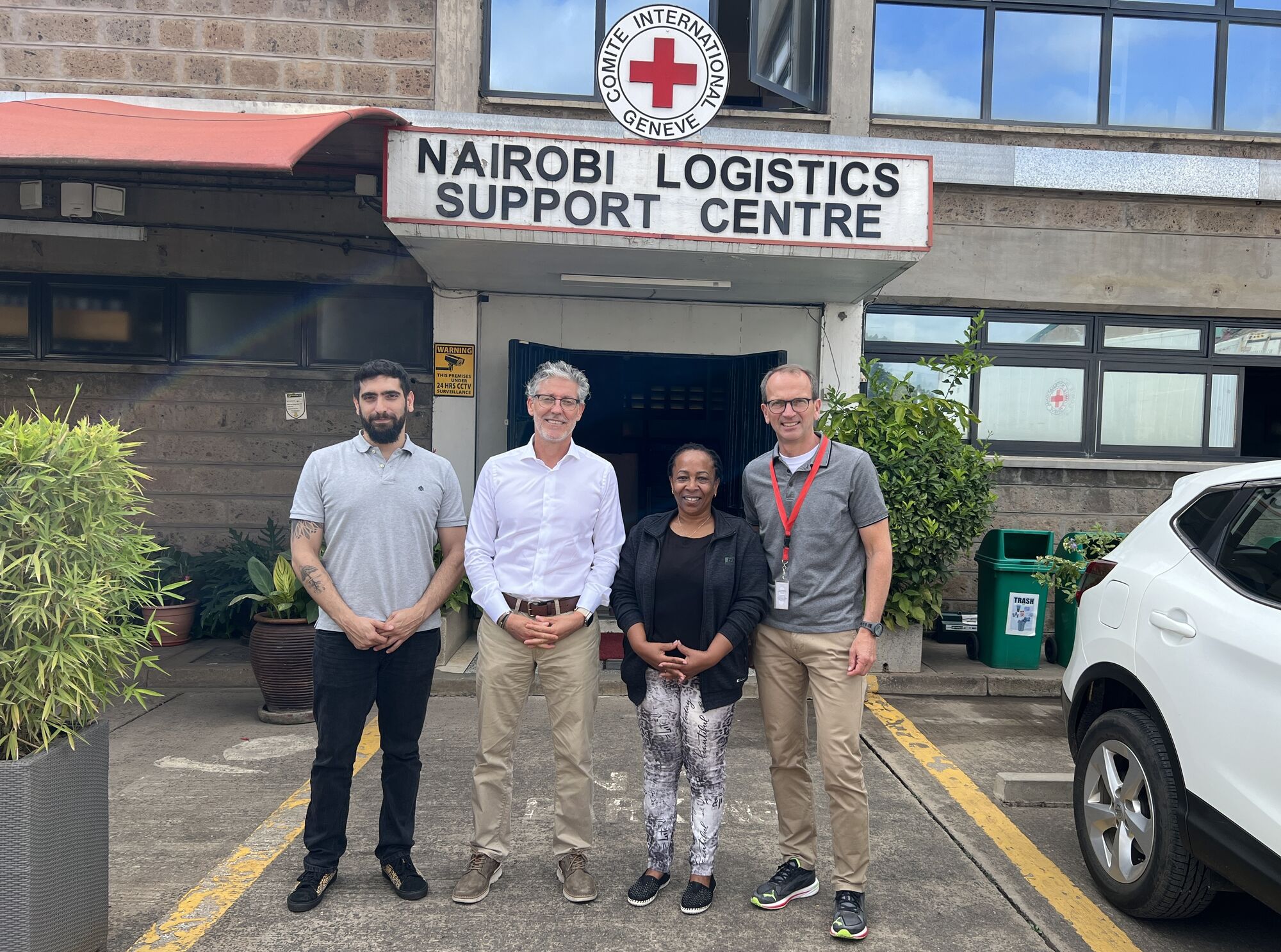
Recent Publications from our Lab
- Löffel, Maximilian/Diehlmann, Florian/Zienau, Alexander/Lüttenberg, Markus/Wiens, Marcus/Wagner, Stephan M./Schultmann, Frank (2025): Improving Emergency Preparedness Through Public-Private Collaboration – Dual-Use Warehouses for Food Supply, Production Planning & Control, (in press)
- Löffel, Maximilian/Schmidt, Christoph G./Wagner, Stephan M. (2025): Supply Chain Risk Management for Humanitarian Aid Delivery: Risk Identification and Contingency Analysis, International Journal of Logistics Management, Vol. 36 No. 1, pp. 225-258, doi: external page 10.1108/IJLM-01-2024-0041
- Thakur-Weigold, Bublu/Parsa, Iman/Balcik, Burcu/Van Wassenhove, Luk N. (2025): Purchasing and Supply Management in Humanitarian Settings, Journal of Purchasing and Supply Management, Vol. 31, No. 3,100975, doi: external page 10.1016/j.pursup.2024.100975
- Thakur-Weigold, Bublu/Tilson, Vera/Pachamanova, Dessislava A./El Sayed Mohamad, Samah (2025): Case Article – Humanitarian Supply Chains and Inventory Management: Planning Medical Supply at the International Committee of the Red Cros, INFORMS Transactions on Education, Vol. 25, No. 3, May, pp. 179-269, doi: external page 10.1287/ited.2023.0066ca
- Schaumann, Sarah K./Thakur-Weigold, Bublu/Van Wassenhove, Luk N. (2024): Reconciling Rigor vs. Relevance: Lessons from Humanitarian Fleet Management. Production and Operations Management, Vol. 33, No. 6, pp. 1306-1319, doi: external page 10.1177/10591478241245977
- Wagner, Stephan M./Ramkumar, M./Kumar, Gopal/Schoenherr, Tobias (2024): Supporting Disaster Relief Operations through RFID: Enabling Visibility and Coordination, International Journal of Logistics Management, Vol. 35, No. 6, pp. 1681-1712, doi: external page 10.1108/IJLM-12-2022-0480
- Seifert, Lysann/Kunz, Nathan/Gold, Stefan (2023): Sustainable Innovations for Humanitarian Operations in Refugee Camps, International Journal of Operations & Production Management, Vol. 43, No. 10, pp. 1554-1586, doi: external page 10.1108/IJOPM-05-2022-0302
- Wagner, Stephan M. (2022): Humanitarian Operations and Supply Chain Management, in: Choi, Thomas Y./Li, Julie/Rogers, Dale/Schoenherr, Tobias/Wagner, Stephan M. (eds.): The Oxford Handbook of Supply Chain Management, New York: Oxford University Press, pp. 55-80, doi: external page 10.1093/oxfordhb/9780190066727.013.38
- Wagner, Stephan M./Tabaklar, Tunca/Seifert, Lysann (2022): HumOSCM for Pandemic Response, International Journal of Logistics Management, Vol. 33, No. 4, pp. 1366-1385, doi: external page 10.1108/IJLM-06-2021-0345
- Thakur-Weigold, Bublu/Buerki, Pascal/Frei, Patrice/Wagner, Stephan M. (2022): Mapping the Swiss Vaccine Supply Chain, Frontiers in Public Health, Vol. 10, July, 935400, doi: external page 10.3389/fpubh.2022.935400
- Wagner, Stephan M./Thakur-Weigold, Bublu/Gatti, Federico/Stumpf, Jonas (2021): Measuring and Improving the Impact of Humanitarian Logistics Consulting, Production Planning & Control, Vol. 32, No. 2, pp. 83-103, doi: external page 10.1080/09537287.2020.1712748
- Wagner, Stephan M. and Thakur-Weigold, Bublu (2018): Supporting Collaboration in Humanitarian Supply Chains – Insights from a Design Science Project, Production Planning & Control, Vol. 29, No. 14, pp. 1130-1144, doi: external page 10.1080/09537287.2018.1542175


